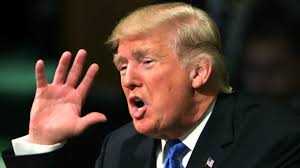
The recent statement by US President Donald Trump, claiming that the United States is brokering talks between India and Pakistan, has not been received warmly in New Delhi. Prime Minister Narendra Modi’s stance on the Kashmir issue is firm and unequivocal: Kashmir is an internal matter of India, and any discussions with Pakistan will focus solely on the territories under Pakistan’s illegal occupation. Any external mediation, even from a global superpower like the United States, fundamentally contradicts India’s consistent policy on this sensitive matter. For decades, Kashmir issue is strictly bilateral. This stance was solidified after the 1972 Simla Agreement, where both India and Pakistan agreed to resolve all disputes through direct negotiations. Furthermore, the Lahore Declaration of 1999 reaffirmed this commitment, making it clear that no third-party involvement is welcome. Prime Minister Modi has echoed this sentiment on numerous global platforms, asserting that Kashmir is an integral part of India. In August 2019, the abrogation of Article 370, which granted special status to Jammu and Kashmir, was a bold statement of our sovereignty and an internal reorganization of our territory, reinforcing that discussions around Kashmir, if any, would solely focus on reclaiming Pakistan-occupied Kashmir (PoK). On the other hand, Pakistan has consistently sought third-party intervention in Kashmir, hoping to garner international support for its claims. This strategic effort has repeatedly been rebuffed by India, and the country remains steadfast in the bilateral approach. Trump’s assertion, therefore, aligns more with Pakistan’s aspirations than India’s policy framework. If Trump’s claims are accurate, this development could create diplomatic friction between India and the US. Though the Modi administration has cultivated strong ties with the US, including significant defense and economic partnerships, the offer to mediate Kashmir could strain this relationship. Our leadership perceives such offers as not only undermining our sovereignty but also as inadvertently legitimizing Pakistan’s narrative. Furthermore, any move suggesting mediation risks setting a dangerous precedent. If we concede to external involvement in Kashmir, it might open the door to international arbitration in other internal matters, weakening our stance on territorial integrity. In light of Trump’s statement, it is essential for the current US administration to clarify its position. India is unlikely to budge from its stance, and any attempt to force mediation could result in diplomatic backlash. Given Modi’s unambiguous position, it would be prudent for the US to respect India’s bilateral policy. While Trump’s intentions may stem from a desire to ease South Asian tensions, the reality is that Kashmir is non-negotiable. Mediation offers are not just unwelcome—they are a challenge to our sovereignty and our right to address our internal matters independently.
The recent statement by US President Donald Trump, claiming that the United States is brokering talks between India and Pakistan, has not been received warmly in New Delhi. Prime Minister Narendra Modi’s stance on the Kashmir issue is firm and unequivocal: Kashmir is an internal matter of India, and any discussions with Pakistan will focus solely on the territories under Pakistan’s illegal occupation. Any external mediation, even from a global superpower like the United States, fundamentally contradicts India’s consistent policy on this sensitive matter. For decades, Kashmir issue is strictly bilateral. This stance was solidified after the 1972 Simla Agreement, where both India and Pakistan agreed to resolve all disputes through direct negotiations. Furthermore, the Lahore Declaration of 1999 reaffirmed this commitment, making it clear that no third-party involvement is welcome. Prime Minister Modi has echoed this sentiment on numerous global platforms, asserting that Kashmir is an integral part of India. In August 2019, the abrogation of Article 370, which granted special status to Jammu and Kashmir, was a bold statement of our sovereignty and an internal reorganization of our territory, reinforcing that discussions around Kashmir, if any, would solely focus on reclaiming Pakistan-occupied Kashmir (PoK). On the other hand, Pakistan has consistently sought third-party intervention in Kashmir, hoping to garner international support for its claims. This strategic effort has repeatedly been rebuffed by India, and the country remains steadfast in the bilateral approach. Trump’s assertion, therefore, aligns more with Pakistan’s aspirations than India’s policy framework. If Trump’s claims are accurate, this development could create diplomatic friction between India and the US. Though the Modi administration has cultivated strong ties with the US, including significant defense and economic partnerships, the offer to mediate Kashmir could strain this relationship. Our leadership perceives such offers as not only undermining our sovereignty but also as inadvertently legitimizing Pakistan’s narrative. Furthermore, any move suggesting mediation risks setting a dangerous precedent. If we concede to external involvement in Kashmir, it might open the door to international arbitration in other internal matters, weakening our stance on territorial integrity. In light of Trump’s statement, it is essential for the current US administration to clarify its position. India is unlikely to budge from its stance, and any attempt to force mediation could result in diplomatic backlash. Given Modi’s unambiguous position, it would be prudent for the US to respect India’s bilateral policy. While Trump’s intentions may stem from a desire to ease South Asian tensions, the reality is that Kashmir is non-negotiable. Mediation offers are not just unwelcome—they are a challenge to our sovereignty and our right to address our internal matters independently.
© Copyright 2023 brighterkashmir.com All Rights Reserved. Quantum Technologies